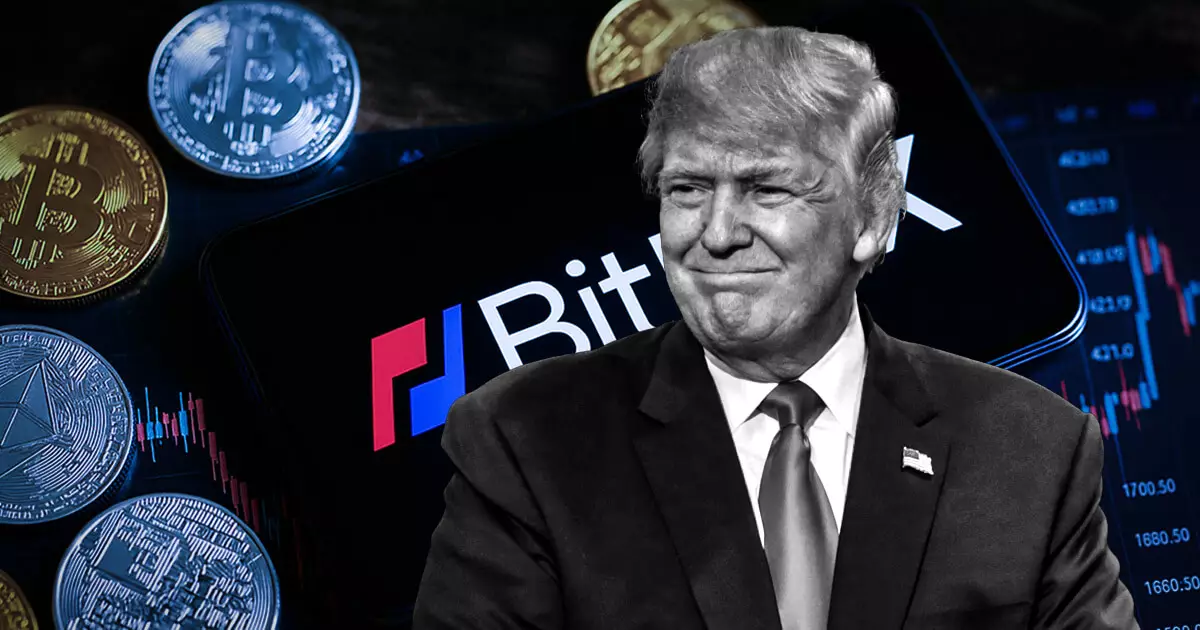On March 27, 2023, former President Donald Trump took a significant step in the intersection of politics, law, and cryptocurrency by issuing full pardons to the BitMEX co-founders, Arthur Hayes, Benjamin Delo, and Samuel Reed. This act of clemency comes in the wake of their acceptance of culpability for violations of US anti-money laundering laws, marking a notable moment in the ever-evolving and tumultuous landscape of digital currency. While this decision may be viewed as a controversial return to the forefront of the American political scene, it begs the question; does this obscure judgment underscore a larger narrative around the treatment of innovation in the face of outdated regulations?
The three founders of BitMEX played instrumental roles in creating one of the world’s pioneering cryptocurrency exchanges back in 2014. Their platform enabled users to engage in high-leverage trading, often with minimal identification requirements, which is where the legal trouble began. The U.S. Department of Justice and the Commodity Futures Trading Commission (CFTC) accused the trio of sidestepping regulations that would have protected American consumers from financial traps, bringing to light the struggle between innovation and compliance in a rapidly evolving industry.
A Flawed Legal Framework
After years of battling legal issues that culminated in their guilty pleas, the pardons have ignited a firestorm of debates. Hayes, Delo, and Reed were each subjected to probation, hefty fines, and in Hayes’s case, home confinement. Their reasoning, as articulated by Delo, pointed to systemic issues within antiquated laws that do not align with the disruptive technology of cryptocurrencies. This sentiment resonates with a growing concern in the entrepreneurial sector—should a single regulatory framework govern an industry characterized by dynamic evolution and diversity?
Delo’s claim that they were used as scapegoats in a broader political struggle echoes sentiments shared by many in the industry. The pardons, in this light, can be construed as a validating gesture, a beacon of hope for those who believe that innovation should not be stifled by outdated statutes. Is it not plausible that the government should adapt to the transformation of technology rather than force it into a tightly regulated mold that does not serve its purpose?
A Broader Implication for Future Innovations
The dramatic sequence of events surrounding BitMEX’s founders poses an interesting dilemma for investors, entrepreneurs, and regulators alike. While the crypto market offers tremendous potential—after all, it has risen to prominence in the financial world—caution flags are just as prevalent. The federal government’s response to BitMEX’s operations was groundbreaking, marking one of the initial instances where criminal penalties were applied in the crypto sphere. One has to wonder if these pardons signal a complacency among lawmakers, sending the message that aggressive enforcement is still an option, yet clemency persists for high-profile offenders.
Within this milieu, what do these pardons mean for the future of crypto entrepreneurship? As the global landscape transitions into a digital economy, we cannot afford a one-size-fits-all regulatory approach. The innovations that are sprouting in the cryptocurrency space need to be supported rather than hindered by a legal framework that fails to keep pace with contemporary advancements.
The Case for Innovation Over Regulation
While it is undeniable that regulation plays a crucial role in consumer protection and responsible financial practices, a balance must be struck between legislation and the necessity for technological advancement. The actions taken against BitMEX’s founders raised pertinent questions: Are authorities prepared to tackle complexities of new financial technologies, or will they cling to an outdated regulatory framework doomed to stifle innovation? The pardons suggest an acknowledgment that perhaps the relentless pursuit of punitive measures against every perceived infraction isn’t the answer.
Given the choice, wouldn’t we prefer to cultivate a vibrant economy that embraces risk and rewards ingenuity? If the U.S. is to truly establish itself as a leader in the global crypto market, it must create an environment where entrepreneurs can navigate their ventures without the constant threat of punitive legal action over archaic laws ill-suited for modern technology.
The pardoning of the BitMEX founders serves as a provocative reminder that we stand at a crossroads; a moment when the government may have to take a hard look at its relationships with innovators rather than facing off against them. As we navigate this digital frontier, it’s imperative to balance the scales of justice without losing sight of the transformative potential of cryptocurrency.



















Leave a Reply